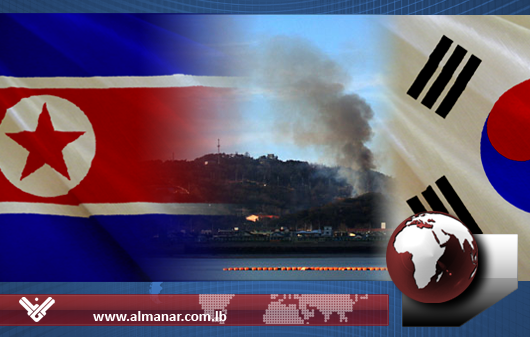International concerns were sparked that the North may soon have a new source of bomb-making material,
Amid voicing concerns over North Korea’s nuclear abilities, South Korea on Wednesday staged its biggest-ever civil defense drill, halting city traffic and ordering people off the streets.
Sirens wailed across the country at 0500 GMT to start the 15-minute exercise. Most traffic quickly halted on Seoul's main street, Sejongno, and elsewhere in the bustling city centre.
The National Emergency Management Agency (NEMA) said the nationwide drill was the first of its kind since a civil defense law was passed in 1975.
The military said 12 jet fighters were mobilized, with one overflying the capital of 10 million, to simulate air strikes by the North.
"The special nationwide evacuation drill is aimed at dealing effectively with a real situation like North Korea's artillery attack on Yeonpyeong Island," NEMA said in a statement.
"Public concern has been growing over North Korea's provocations."
North Korea’s November 23 bombardment of the border island killed four South Koreans including two marines. It was the first attack on civilian-populated areas since the 1950-53 war.
International concerns were sparked that the North may soon have a new source of bomb-making material.
The National Emergency Management Agency said in a statement: “Public concern has been growing over North Korea's provocations,” citing continued military threats, high tensions in the Yellow Sea and the possibility of a third nuclear test by Pyongyang.
The North says this is part of a peaceful atomic energy program. But US experts say the plant could easily be reconfigured to produce weapons-grade uranium to augment the country's plutonium stockpile.
The US State Department said Tuesday the North has "at least one other" uranium enrichment site apart from the one disclosed at the Yongbyon complex.
"This remains a significant area of concern," said spokesman Philip Crowley.
South Korea's Chosun Ilbo newspaper, quoting intelligence sources, said the North had dug a tunnel more than 500 meters deep at its nuclear test site in possible preparation for another test.
"If progress goes on at the current pace, the North will have dug a cave one kilometer deep, the depth where it is possible to conduct a nuclear test, between March and May next year," one official was quoted as saying.
Diplomats are touring the region to discuss a response both to the artillery attack and the nuclear threat.
Russia's Foreign Minister Sergei Lavrov, at a meeting Monday with his visiting North Korean counterpart Pak Ui-Chun, expressed "deep concern" about the new uranium capability.
China, the North's sole major ally, has called for a new meeting of six-party envoys to resolve the latest crisis on the peninsula.
But the United States, Japan and South Korea say a return to negotiations at this point could be seen as rewarding the North's aggression.
They want China, which has failed publicly to condemn its ally for the island attack, to take a tougher line.
US Deputy Secretary of State James Steinberg and other US officials have left for Beijing and are expected to press it to take tougher action.
"We hope that China will work with us to send a clear, unmistakable message to North Korea that they have to demonstrate a seriousness of purpose and end their provocative actions," US ambassador to South Korea Kathleen Stephens told a Seoul lunch meeting.
